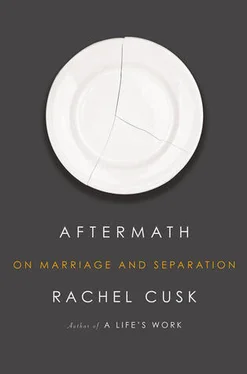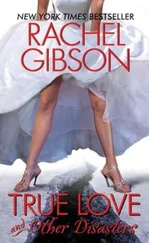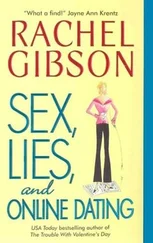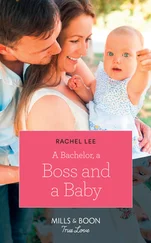Rachel Cusk - Aftermath - On Marriage and Separation
Здесь есть возможность читать онлайн «Rachel Cusk - Aftermath - On Marriage and Separation» весь текст электронной книги совершенно бесплатно (целиком полную версию без сокращений). В некоторых случаях можно слушать аудио, скачать через торрент в формате fb2 и присутствует краткое содержание. Год выпуска: 2012, Издательство: Farrar, Straus and Giroux, Жанр: Публицистика, Биографии и Мемуары, на английском языке. Описание произведения, (предисловие) а так же отзывы посетителей доступны на портале библиотеки ЛибКат.
- Название:Aftermath: On Marriage and Separation
- Автор:
- Издательство:Farrar, Straus and Giroux
- Жанр:
- Год:2012
- ISBN:нет данных
- Рейтинг книги:3 / 5. Голосов: 1
-
Избранное:Добавить в избранное
- Отзывы:
-
Ваша оценка:
- 60
- 1
- 2
- 3
- 4
- 5
Aftermath: On Marriage and Separation: краткое содержание, описание и аннотация
Предлагаем к чтению аннотацию, описание, краткое содержание или предисловие (зависит от того, что написал сам автор книги «Aftermath: On Marriage and Separation»). Если вы не нашли необходимую информацию о книге — напишите в комментариях, мы постараемся отыскать её.
Aftermath: On Marriage and Separation — читать онлайн бесплатно полную книгу (весь текст) целиком
Ниже представлен текст книги, разбитый по страницам. Система сохранения места последней прочитанной страницы, позволяет с удобством читать онлайн бесплатно книгу «Aftermath: On Marriage and Separation», без необходимости каждый раз заново искать на чём Вы остановились. Поставьте закладку, и сможете в любой момент перейти на страницу, на которой закончили чтение.
Интервал:
Закладка:
The cake is a three-tiered cake, the tiers cemented and then the whole edifice plastered from top to bottom with icing. The children decorated it, with hard little icing rosebuds and silver balls that came from a packet. In different-coloured icing they wrote ‘Happy Birthday’ on the top. The cake is so large that it has to travel in an enormous cardboard box. I keep glimpsing its summit in the rear-view mirror, a gaudy mountain. It seems both cheap and extravagant: from the back of the car it emanates waves of grandiosity and shame. I realise that the cake is a failure. There was something fanciful in my conception of it that was somehow allowed to run riot, unconstrained by a proper recognition of the labour involved in bringing it to life. My vision — three different tiers of lemon, chocolate and vanilla — had become detached from my competence. I remember from childhood how easy it was to imagine, how hard to create: the difference between what I could conceive of and what I could actually do was bewildering. In adulthood I have learned that to envisage is nothing: success is a hard currency, earned by actual excellence. The vision has to be externalised, and in the case of the cake it remains the prisoner of my imaginings. Dimly I recall my hours in the kitchen the day before, mixing and baking the different tiers. I didn’t use a recipe: utterly at the service of my vision, I was operating by blind faith alone. Yet I was neglectful, careless, not measuring things properly, taking shortcuts wherever I could. Was it because the vision was mine that I was so careless with it? I see the same impatience sometimes when my children undertake something they can’t execute, a sort of disregard — almost a contempt — for practicality, perhaps even for reality itself. What they like is what is in their heads — how boring it is, how hard and intransigent, this plane on which their imaginings aren’t recognised, where their visions are translated into shapeless nonsensical things! I too forgot, during those hours, the hard standard of success; forgot that people would be eating this cake, judging it. When the tiers were cooked I removed them from their tins, three rubbery discs whose indeterminate colour and smell I apprehended from a great psychological distance. I buried them in icing, as though burying the product of my shame; and the children decorated the mound with flowers and inscriptions like a freshly dug grave. Children have a knack for the funereal, a certain authority where death is concerned. Unlike their creativity, this is pure competence. It looks nice, Mummy, they both said, as we interred it in its cardboard box.
My family requires several tables laid end to end to accommodate it. In my brother’s house the biggest room has been cleared to make way. The tables have been brought in, amassed from all over: the dining-room table and the kitchen table, the leaf-strewn garden table, desks and side tables from around the house, and lastly a huge piece of chipboard laid across two trestles carried over from the garage. It is autumn, a cold bright Sunday, and the light comes without warmth through the sitting-room windows. The different tables stand in a long line, their ends touching in the hard light. My sister-in-law unfolds an enormous tablecloth: it is two cloths, in fact, of the same material, with a runner laid across the centre to hide the join. As she spreads them out the oddity of different surfaces, the cheap beside the costly, the jigsaw of inadequacy and splendour, is transformed into a vision of wholeness. No one would now guess at the compromise that lies beneath the smart tablecloths; the fact that the underlying structure is both less and more than it seems has been lost to the conformity of the surface.
The youngest person sitting down to lunch is two, the oldest — my grandmother — ninety-two. There has never been a divorce in this clan. Some children are the first in their family history to go to university: mine are the first to experience the public breakdown of their parents’ marriage. Other than myself, of the many assembled adults only my grandmother is without her mate. My grandfather died when my grandmother was in her sixties: for nearly thirty years she has lived without a husband. These three decades begin to rival the decades of her marriage like the outskirts of a town engulfing its historic centre, yet that centre holds, remains the explanation, the cause. Unlike me, my grandmother never ended the story; it goes on, with or without certain of its main characters.
When I was younger I thought she must be relieved to be alone, after all those years. Though I had loved my grandfather I saw it as a disencumbrance, a liberation, like taking off shoes that hurt. Marriage appeared to me as a holding-in, a corseting, and it seemed to my eyes that the force of constraint was male; that it was men who imposed this structure, marriage, in order to make a woman unavailable, and with her the gifts of love and warmth that otherwise might have flowed freely out into the world. But men provided shelter, and money: I understood that a woman could not merely liberate herself, couldn’t just take herself off with her gifts of love and warmth and go elsewhere. What had happened to my grandmother seemed the ideal solution, to be left with the chattels but freed from the male authority that had provided them, though admittedly it had taken an awfully long time to happen. It never occurred to me that she might remarry, might enter again into that bondage, and indeed she never did. And it never occurred to me either that she might have remained alone out of loyalty to the familial enterprise; that she might have been lonely, have sickened for companionship, but continued to play her part for the sake of her children; that she might have understood, as I did not, that the jigsaw is frail, not strong, is a mirage, not a prison. It is not to dismantle but to conserve it that strength is required, for it will come apart in an instant. It will come apart, that image, and what remains is not a new or different image but a pile of pieces that mean nothing at all.
At the end of lunch the enormous cake is brought in, amid exclamations in which I believe I can detect notes of uncertainty. For a moment the threat — or rather the knowledge — of failure is unbearable, the inescapable knowledge that is the essence of this second life, this aftermath. As a child, I read the book of life through the adults I knew, just as now I read it through my children, the second reading perhaps a form of atonement for the first, for I know what it is to be a child. That first reading was savage and revelatory where the second is empathetic and philosophical: eyes strained against the darkness of my own ignorance, I struggled to comprehend the grandeur and violence of the adult world, to grasp its double nature of seeming and being. And in this duplicity, this difference between how things looked and what they were, was something to which I couldn’t be reconciled, just as now I can’t forget that under the pretty tablecloths lies a makeshift structure that has no form or beauty of its own. In much the same way, I saw the romance of marriage as a covering for something unapologetically practical, saw it as the metaphor for woman, the beautiful creature who cooks and cleans. Why couldn’t the outside and the inside be the same? Beneath the surface of my cake is something worse than practical, worse than makeshift: it is the reversal of meaning; it is failure itself. Far better to be practical than to make a foul-tasting cake. Better to go to a shop and buy a cake than to produce this extravagant travesty of love.
The first Christmas after my grandfather died, my grandmother cried at the table, a paper hat from a Christmas cracker on her head. I remember the way the flimsy hat sat jauntily on her greying hair as she wept. It seemed to readmit her to the world of childhood; and indeed I sensed around the table a slight impatience with her conduct to which my own frequent emotional outbursts had long since accustomed me. For some reason her tears were not permitted: the obligation to romanticise marriage had been, somehow, reversed by my grandfather’s absence. The covers were off: why on earth was she trying to put them back on again? My grandmother had been brave in marriage: for more than forty years the surface was maintained. It seemed unfair that she shouldn’t be allowed to sentimentalise now, when it could do no harm. In her jaunty hat, husbandless, she had been returned to the caste and strictures of childhood, to our end of the table, where people were told when they could and couldn’t cry.
Читать дальшеИнтервал:
Закладка:
Похожие книги на «Aftermath: On Marriage and Separation»
Представляем Вашему вниманию похожие книги на «Aftermath: On Marriage and Separation» списком для выбора. Мы отобрали схожую по названию и смыслу литературу в надежде предоставить читателям больше вариантов отыскать новые, интересные, ещё непрочитанные произведения.
Обсуждение, отзывы о книге «Aftermath: On Marriage and Separation» и просто собственные мнения читателей. Оставьте ваши комментарии, напишите, что Вы думаете о произведении, его смысле или главных героях. Укажите что конкретно понравилось, а что нет, и почему Вы так считаете.












